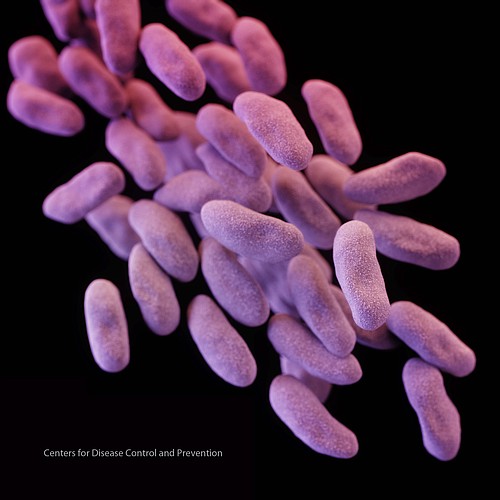- April 18, 2024
-
-
Loading

Loading

Four years ago, local resident Ann had her appendix removed in a local hospital and left with Clostridium difficile (aka c. diff), a dreaded infection that inflames the colon and is difficult to treat. She has had digestive problems ever since.
Other superbugs that do not respond well to antibiotics are methicillin-resistant Staphylococcus aureus (MRSA), and some strains of tuberculosis.
These and other superbugs, resistant to antibiotics, present a global problem.
In the U.S., they infect over 2 million people and claim 23,000 lives each year in the U.S. Across the globe, they kill over 700,000 people. Dr. Margaret Chan, director general of the World Health Organization, has called the problem of antibiotic resistance a “slow moving tsunami”.
Our love of antibiotics started out well. Penicillin, dubbed the miracle drug over 50 years ago, was discovered by accident in 1928, when biologist Sir Alexander Fleming saw that bacteria did not grow where mold had grown. By 1945, Sir Fleming received the Nobel Prize for his work against bacterial infections.
But too much of a good thing is not good. Overuse and misuse of antibiotics has spawned resistant strains. An estimated one third of the 150 million antibiotics prescriptions written each year in USA are unnecessary or inappropriate. As early as 1948, Sir Fleming predicted antibiotic misuse would lead to resistant strains. Microbes were here before us and will be here long after we are gone. Their incredible ability to adapt and multiply dwarfs our ability to control them.
Using antibiotics in healthy animals, a major contributor to antibiotic resistance in humans, has been banned in the European Union for 10 years but still continues in the U.S. Antibiotics have been used in livestock to speed up growth and produce more meat and milk per cow, but are much less effective now.
The problem of drug resistant infections is further compounded by the lack of new drugs to fight infections, as drug companies put research resources on blockbuster drugs for chronic diseases, drugs patients take every day for years, instead of antibiotics which are typically taken for a short time.
What can you do about it? Wash your hands frequently (with real soap and water). Be as healthy as you can be, with a healthy diet, exercise, and stress management, so you have a strong immune system. Don’t take antibiotics unless absolutely necessary. Antibiotics do not work for viruses and should not be used for the flu, colds, or other viral infections. If you do take an antibiotic, take as prescribed and finish the full course. Don’t take someone else’s antibiotics. Shop for antibiotic-free foods and support public policies that rein in the use of antibiotics in our food supply. We can all be better stewards of antibiotics. We all play a part in fighting the superbugs.
Dr. Nancy Rudner Lugo, local workplace nurse coach with HealthAction.biz, helps companies, employees, and individuals take steps for better health for all. Send your questions to [email protected]